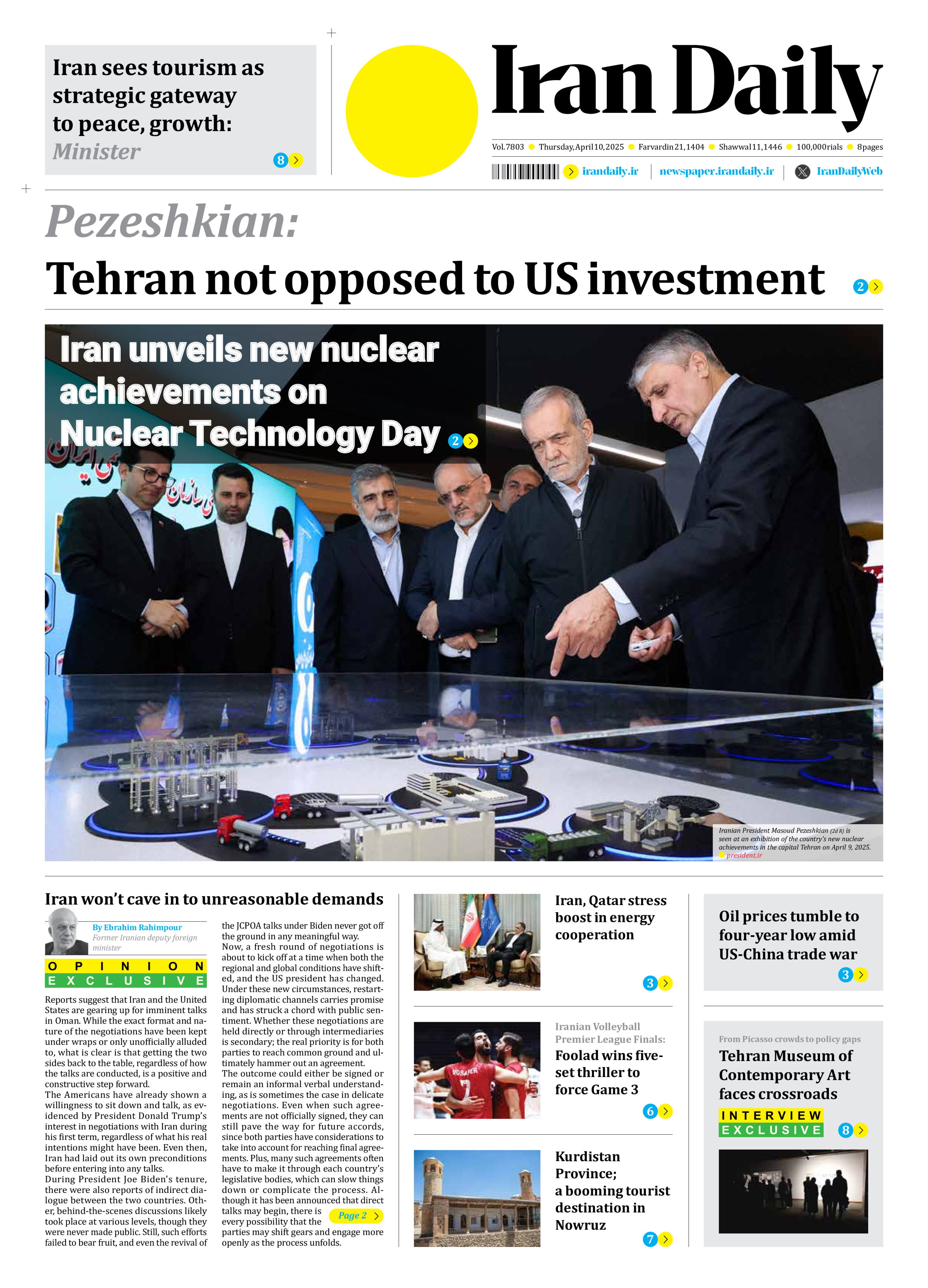
Iran won’t cave in to unreasonable demands
By Ebrahim Rahimpour
Former Iranian deputy foreign minister
Reports suggest that Iran and the United States are gearing up for imminent talks in Oman. While the exact format and nature of the negotiations have been kept under wraps or only unofficially alluded to, what is clear is that getting the two sides back to the table, regardless of how the talks are conducted, is a positive and constructive step forward.
The Americans have already shown a willingness to sit down and talk, as evidenced by President Donald Trump’s interest in negotiations with Iran during his first term, regardless of what his real intentions might have been. Even then, Iran had laid out its own preconditions before entering into any talks.
During President Joe Biden’s tenure, there were also reports of indirect dialogue between the two countries. Other, behind-the-scenes discussions likely took place at various levels, though they were never made public. Still, such efforts failed to bear fruit, and even the revival of the JCPOA talks under Biden never got off the ground in any meaningful way.
Now, a fresh round of negotiations is about to kick off at a time when both the regional and global conditions have shifted, and the US president has changed. Under these new circumstances, restarting diplomatic channels carries promise and has struck a chord with public sentiment. Whether these negotiations are held directly or through intermediaries is secondary; the real priority is for both parties to reach common ground and ultimately hammer out an agreement.
The outcome could either be signed or remain an informal verbal understanding, as is sometimes the case in delicate negotiations. Even when such agreements are not officially signed, they can still pave the way for future accords, since both parties have considerations to take into account for reaching final agreements. Plus, many such agreements often have to make it through each country’s legislative bodies, which can slow things down or complicate the process. Although it has been announced that direct talks may begin, there is every possibility that the parties may shift gears and engage more openly as the process unfolds.
Page 2







